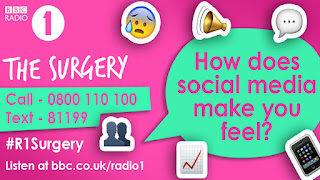Applying Marxism
1) What does Marxism suggest regarding power in society?
Marxism suggests that the power was in the hands of a minority (the elite) who could access the capital and use their money and power to acquire more wealth. The mass population had only their labour to help them earn a living. The elite would use those with less power to maximise their profits in order to get the most productivity at the lowest cost possible.
2) Why is The Apprentice a good example of the media reinforcing capitalist values and ideologies?
The Apprentice is a good example because Lord Alan Sugar has all the power reinforcing the 'superior' position of the capitalist elite. He has used the capitalist system to create his wealth and is shown using this power to provide a source of income for the winner of the competition. People who are too creative and challenge the authority are fired which reinforces capitalist views that those with money and power are more important than those without it.
3) Come up with three examples of media texts (e.g. TV programmes, newspapers etc.) that either fetishise working class life (e.g. EastEnders presents quite a harmonious East End community which probably doesn't accurately reflect East London life) or demonise working class life or poor people (e.g. The Daily Mail and The Sun newspapers regularly demonise people living on benefits with headlines referring to 'scroungers'.)
- The Telegraph published an article in early Jan 2018 titled "Being working class is rubbish. Labour should abolish it, not fetishise it." This newspaper definitely demonises the working class and their headline clearly shows how they feel.
- Coronation street fetishises the underclass and working class which isn't an accurate representation.
- The Daily Mail demonises the working class and refers to them as 'scroungers' and 'work shy'.
5)
Marxism suggests that the power was in the hands of a minority (the elite) who could access the capital and use their money and power to acquire more wealth. The mass population had only their labour to help them earn a living. The elite would use those with less power to maximise their profits in order to get the most productivity at the lowest cost possible.
2) Why is The Apprentice a good example of the media reinforcing capitalist values and ideologies?
The Apprentice is a good example because Lord Alan Sugar has all the power reinforcing the 'superior' position of the capitalist elite. He has used the capitalist system to create his wealth and is shown using this power to provide a source of income for the winner of the competition. People who are too creative and challenge the authority are fired which reinforces capitalist views that those with money and power are more important than those without it.
3) Come up with three examples of media texts (e.g. TV programmes, newspapers etc.) that either fetishise working class life (e.g. EastEnders presents quite a harmonious East End community which probably doesn't accurately reflect East London life) or demonise working class life or poor people (e.g. The Daily Mail and The Sun newspapers regularly demonise people living on benefits with headlines referring to 'scroungers'.)
- The Telegraph published an article in early Jan 2018 titled "Being working class is rubbish. Labour should abolish it, not fetishise it." This newspaper definitely demonises the working class and their headline clearly shows how they feel.
- Coronation street fetishises the underclass and working class which isn't an accurate representation.
- The Daily Mail demonises the working class and refers to them as 'scroungers' and 'work shy'.
5)
- show the values of the power elite as beneficial to the mass: using the police and PI to help solve the mystery of the postcards and messages being sent to the people.
- show queries or challenges to the base as meaningless, foolish or anti-social via ‘failed revolt’: an example would be Quentina trying to fight for her to continue living in London.
- show the subdominant position of the masses as a naturalised idea: this could be that the residents are unable to figure out who has been harassing them without the help of the police which reinforces certain capitalist views.
- show the values of the power elite as ‘natural’ or ‘right’: a good example would be of the police officer doing his duty and helping the residents.
- show that being a member of the mass is a good thing: an example of this is when the Asian shopkeeper helped out Arabella and gave her some coriander from his own house, also when he helped the elderly lady to her house. This suggest that being apart of the mass means there is a sense of community and goodwill, the members of the mass are there to help each other when needed.
- show the masses accepting the values of the power elite: When Roger was expecting a huge bonus but only received £30,000 he had no other choice but to accept the money.
- show the values of the power elite as being ‘for the good of the masses’ (even when unpleasant): an example of this could be getting rid of immigrants such as Quentina so there is more jobs available and houses for British citizens.


Comments
Post a Comment